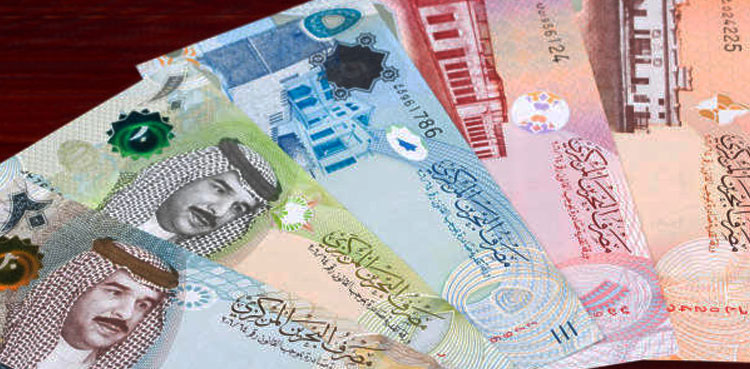Manama, Bahrain – May 17, 2025: The Bahraini Dinar (BHD) was stable against the Pakistani Rupee (PKR) today, with the exchange rate remaining unchanged at 747.07 PKR, as per the latest data from the interbank market.
This stability is a result of overall economic considerations affecting both currencies, especially Bahrain’s fixed exchange rate policy and Pakistan’s continued moves towards economic stability.
Valuation Process
The Bahraini Dinar and Pakistani Rupee exchange rate is set mainly in the interbank market where large financial institutions buy and sell currencies. The U.S. peg has a strong influence on the valuation of BHD. Dollar (USD) at a fixed exchange rate of 1 USD = 0.376 BHD, a policy that has been implemented by the Central Bank of Bahrain since 2001. The peg helps to keep the BHD stable against major currencies, including those indirectly pegged to the USD, such as the PKR.
PKR, however, follows a managed float regime, where the State Bank of Pakistan steps in to rein in excessive volatility. The rate of BHD/PKR is determined using the USD/PKR rate and the fixed peg of BHD/USD. If, for example, 1 USD is around 280 PKR, the value of BHD in PKR is determined by dividing the rate of PKR/USD by the rate of BHD/USD (280 ÷ 0.376 ≈ 747.07 PKR). The currency converter and financial websites like Wise and Coinbase validate this rate in real-time as of May 17, 2025.
Economic Impact
The stability of the Bahraini Dinar against the PKR has far-reaching consequences for trade, remittances, and travel between Bahrain and Pakistan. Bahrain has a large Pakistani expatriate community, and an exchange rate that is stable ensures consistent remittance inflows, which are a boon for families back in Pakistan who depend on them. For companies, the stable rate allows for easier trade, especially in industries such as construction and retail, where Pakistani labor and Bahraini companies have a lot of interaction.
For Pakistan, a stable PKR versus the BHD would assist its overall efforts towards broader economic stabilization in the face of issues such as inflation and foreign debt. The value of the PKR, however, is still vulnerable to domestic variables, including political stability and foreign exchange reserves, which may affect future movements. Bahrain’s economy, with its USD peg and continued fiscal reforms aimed at diversifying away from oil dependence, should be able to sustain the strength of the BHD, assuring sustained stability in the BHD/PKR pair.
Tourists and investors too gain from this predictability. Pakistani tourists going to Bahrain can budget with ease, while Bahraini investors targeting prospects in Pakistan’s expanding markets incur less currency risk. Yet analysts warn that international economic fluctuations, like a change in U.S. monetary policy or oil prices, may indirectly influence the PKR value, considering Pakistan’s dependency on imports.
Currency Background
The Bahraini Dinar (BHD) since 1965 is the currency of Bahrain, being divided into 1,000 fils. Pegged to USD, it is one of the highest-valued currencies of the world, represented by BHD. The BHD is issued by the Central Bank of Bahrain and is utilized only in the kingdom and not internationally accepted widely, for which it needs to be exchanged while traveling internationally.
Currency Rates in Pakistan Today
The Pakistani Rupee, abbreviated as ₨ or Rs, has been Pakistan’s national currency since the nation’s independence in 1947. Governed by the State Bank of Pakistan, it is divided into 100 paisa, although the paisa coins are no longer in circulation. The PKR is uniformly utilized throughout the country, from major cities such as Karachi to rural areas, yet, similar to the BHD, it is not uniformly accepted abroad, requiring exchange for international use.
The current stable BHD/PKR rate reflects the dynamics of Bahrain’s fixed-rate policy and Pakistan’s managed float, providing a credible basis for economic transactions between the two countries.
Sources: State Bank of Pakistan


Leave a Comment